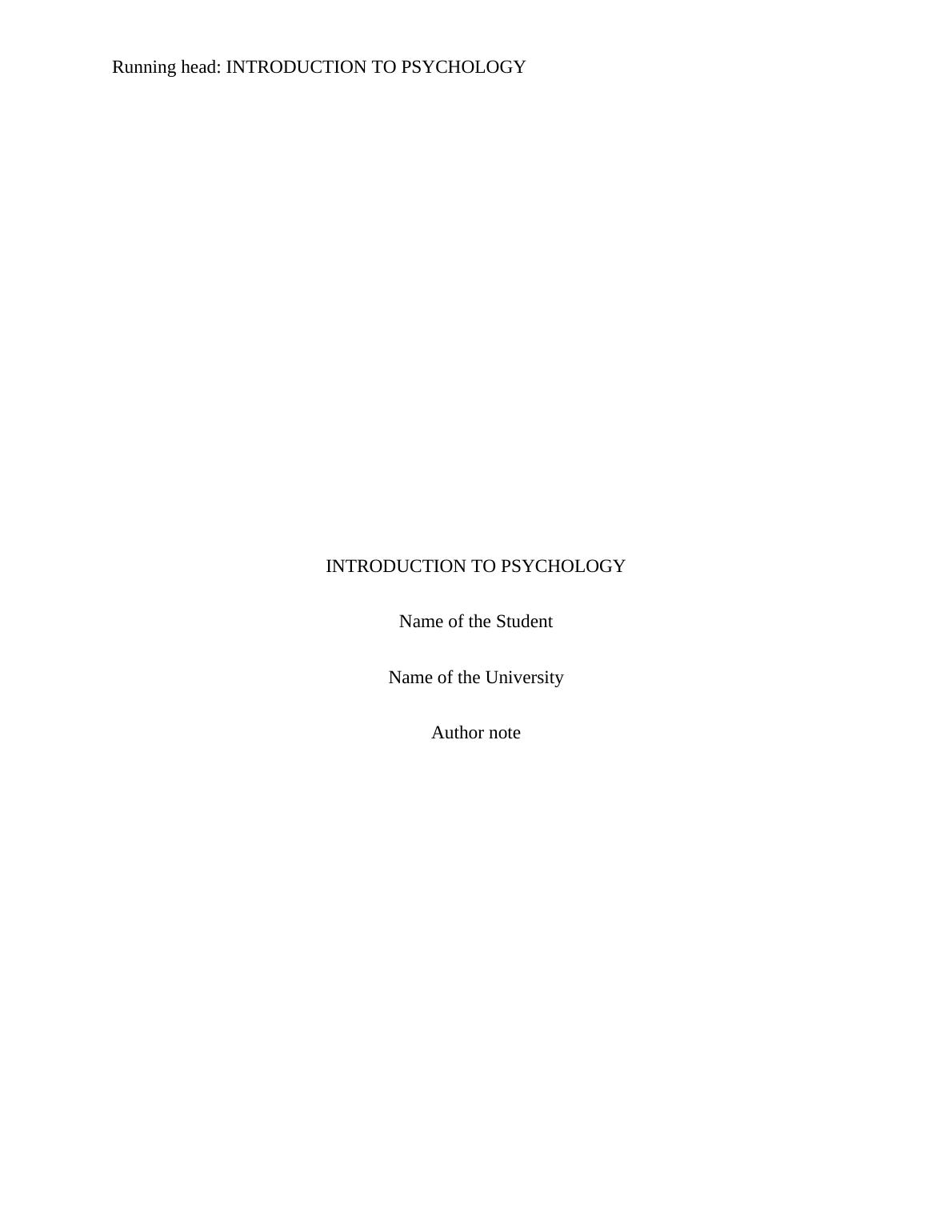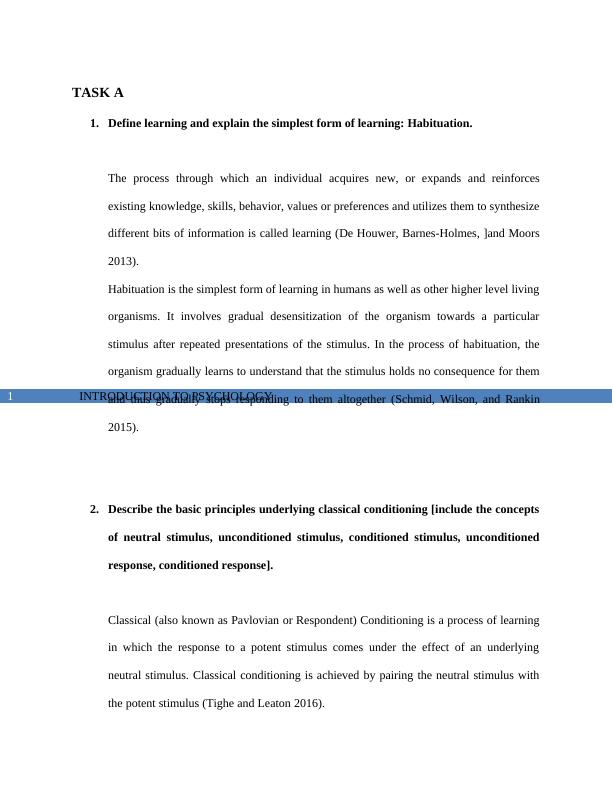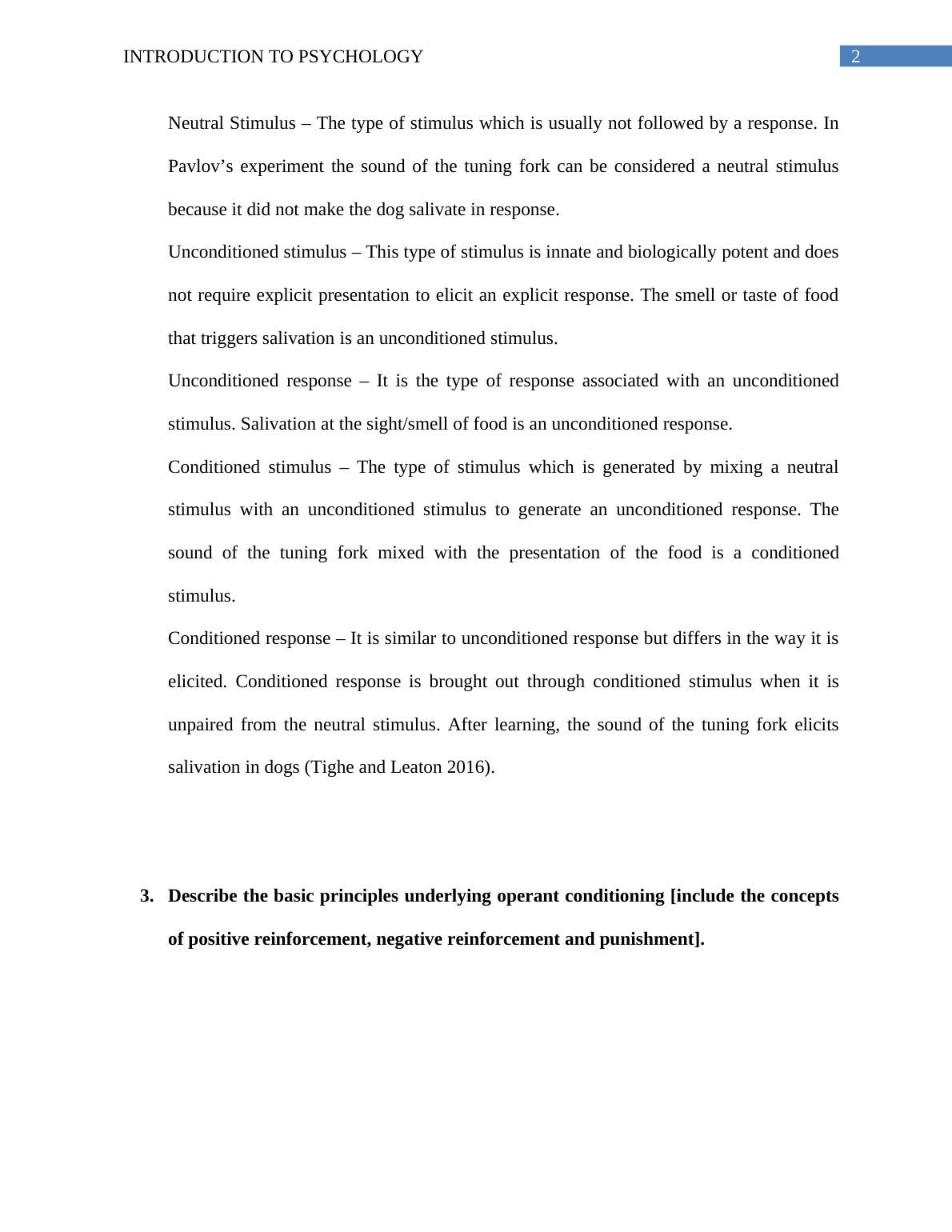Introduction to Psychology: Learning, Classical Conditioning, Operant Conditioning, and Social Learning
Complete all three tasks in Introduction to Psychology Assignment 4, including a multiple choice test, answering specific questions, and a tutorial or online activity.
9 Pages1819 Words188 Views
Added on 2022-10-12
About This Document
This article discusses the basics of learning, classical conditioning, operant conditioning, and social learning in psychology. It defines habituation and explains the simplest form of learning. It also describes the basic principles underlying classical conditioning, operant conditioning, and social learning conditioning. Additionally, it defines extinction in terms of classical and operant conditioning. The article also provides practical applications of these concepts in personal life.
Introduction to Psychology: Learning, Classical Conditioning, Operant Conditioning, and Social Learning
Complete all three tasks in Introduction to Psychology Assignment 4, including a multiple choice test, answering specific questions, and a tutorial or online activity.
Added on 2022-10-12
ShareRelated Documents
End of preview
Want to access all the pages? Upload your documents or become a member.
Associative Learning in Psychology
|5
|1008
|84
Behaviour Development Through Classical Conditioning
|9
|1758
|22
Behavioral Perspective Assignment
|5
|657
|139
Introduction to Psychology Theory 2022
|10
|2712
|26
Psychology: Behaviourist Theory in Child Learning and Development Essay 2022
|8
|2126
|34
Psychology of Addiction: Classical Conditioning and Substance Addiction
|8
|2136
|185



